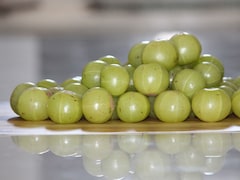Benefits Of Pimple Patches: This article delves into the types of pimple patches available, their mechanisms of action, benefits, limitations, and safety considerations.

Are Pimple Patches A Safer Way To Treat Active Acne?
Pimple patches have gained popularity as a convenient over-the-counter solution for managing active acne lesions. These small adhesive dressings are designed to be applied directly onto pimples, aiming to expedite healing and prevent further irritation. But how effective and safe are they in treating active acne? This article delves into the types of pimple patches available, their mechanisms of action, benefits, limitations, and safety considerations.
Types of pimple patches
Pimple patches primarily fall into two categories: hydrocolloid patches and medicated patches.
1. Hydrocolloid patches
These are made from a moisture-retentive material that absorbs exudate from the pimple. They create a moist environment conducive to wound healing and act as a protective barrier against external contaminants. Hydrocolloid patches are particularly effective for surface-level acne lesions, such as whiteheads. They work by drawing out impurities and reducing inflammation.
2. Medicated patches
These patches combine the benefits of hydrocolloid technology with active acne-fighting ingredients like salicylic acid or tea tree oil. Salicylic acid, a beta hydroxy acid, helps unclog pores and remove excess sebum, making these patches suitable for inflamed pimples. However, they may cause irritation in individuals with dry or sensitive skin.
Benefits of Pimple Patches
Individuals should consider their skin type and the severity of their acne when incorporating pimple patches into their skincare routine and seek professional medical advice for persistent or severe acne conditions.
1. Protection
By covering the pimple, patches prevent picking and touching, which can exacerbate inflammation and increase the risk of scarring.
2. Absorption of exudate
Hydrocolloid patches effectively absorb pus and fluid from active lesions, promoting faster healing.
3. Discretion
Many patches are designed to be transparent and thin, allowing for discreet daytime use.
Limitations of pimple patches
While pimple patches offer several advantages, they are not a one-size-fits-all solution.
1. Limited efficacy on deep lesions
Pimple patches are most effective on superficial acne lesions. They are not suitable for deeper acne types like cysts or nodules, which require more comprehensive treatments.
2. No preventative action
Pimple patches do not prevent the formation of new acne lesions. They are designed for spot treatment and should be used in conjunction with a broader acne management regimen.
Safety considerations before using pimple patches
Pimple patches are generally considered safe for most individuals when used appropriately. However, it's essential to keep the following in mind.
1. Skin sensitivity
Individuals with sensitive skin may experience irritation, especially when using medicated patches containing active ingredients like salicylic acid. It's advisable to monitor the skin's response and discontinue use if significant irritation occurs.
2. Proper application
Ensure that the skin is clean and dry before applying a patch to enhance adherence and effectiveness.
3. Consultation for severe acne
For individuals with moderate to severe acne, it's recommended to consult a dermatologist. Pimple patches may not provide adequate treatment for more severe forms of acne, and professional guidance can help in formulating an effective skin treatment plan.
Pimple patches can be a valuable addition to an acne treatment regimen, particularly for managing individual surface-level pimples. Benefits of pimple patches are protection from external irritants, absorption of exudate, and prevention of habitual pimple picking. However, they are not a substitute for comprehensive acne therapy, especially in cases of severe or cystic acne.
Disclaimer: This content including advice provides generic information only. It is in no way a substitute for a qualified medical opinion. Always consult a specialist or your own doctor for more information. NDTV does not claim responsibility for this information.
DoctorNDTV is the one stop site for all your health needs providing the most credible health information, health news and tips with expert advice on healthy living, diet plans, informative videos etc. You can get the most relevant and accurate info you need about health problems like diabetes, cancer, pregnancy, HIV and AIDS, weight loss and many other lifestyle diseases. We have a panel of over 350 experts who help us develop content by giving their valuable inputs and bringing to us the latest in the world of healthcare.














